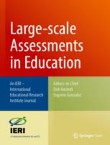Special issue editors:
Nani Teig, Univeristy of Olso - Lead Guest Editor
Isa Steinmann, University of Olso - Lead Guest Editor
What makes a school practice effective and equitable for all students? The answer to this question is the Holy Grail of educational research. Researchers seek to find out how different aspects of school systems—including teacher competence, school characteristics, and educational policies—can be optimized to provide excellent learning opportunities across different groups of students. New knowledge about effective and equitable school practices is essential for evidence-based policymaking that focuses on improving student outcomes and closing the gap in educational inequality. The implementation of national and international large-scale assessments has opened manifold unique research opportunities that contribute to answering this question. Many of these research endeavors require large datasets that encompass numerous schools and allow comparisons across countries or developments over time. Large-scale assessments collect valuable repeated-measurement data using representative samples, which offers the potential to inform educational policy and practice based on generalizable findings.
This special issue aims at utilizing both national and international large-scale assessments to gain a better understanding of what makes school practices effective and equitable. The use of Nordic countries as a showcase is crucial, since these countries have very similar historical, cultural, and economic characteristics, which implies that schools and teachers work under somewhat comparable conditions. Nevertheless, the Nordic countries show very different results in the large-scale assessments across subject areas and trends over time. These results indicate that the Nordic education systems are not as similar as one might expect. The special issue will therefore offer valuable knowledge about effective and equitable school practices from this showcase of the Nordic countries. The knowledge drawn from the Nordic showcase will also be relevant for international education systems. Given the recent sharp increase in educational inequalities due to the pandemic, such knowledge takes an even greater urgency than ever before.
